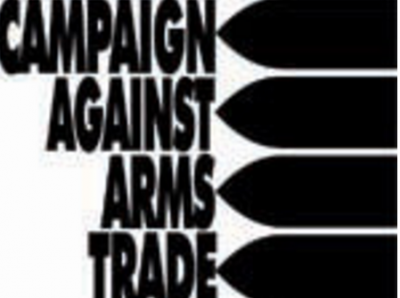Cameron Government Threatened with Legal Action over UK Arms Export Licences to Saudi Arabia

Law firm Leigh Day, representing Campaign Against Arms Trade (CAAT), has issued a pre-action protocol letter for judicial review challenging the government’s decision to export arms to Saudi Arabia despite increasing evidence that Saudi forces are violating international humanitarian law (IHL) in Yemen.
As set out in the letter, a range of international organisations including the European Parliament and many humanitarian NGOs, have condemned the ongoing Saudi air strikes against Yemen as unlawful. Matters of particular concern include the following:
- The targeting of civilians and those not directly participating in hostilities.
- The apparent targeting of civilian objects in Saudi air strikes; including facilities that are necessary to meet basic humanitarian needs such as electricity and water processing plants.
- The disproportionate scale of civilian casualties.
- Failure to take precautions to prevent or minimise the loss of civilian life of the infliction of harm or unnecessary suffering on civilians.
- The destruction of cultural property.
- A naval blockade contrary to international humanitarian law enforced by Saudi Arabia, preventing goods from entering the country, including essential foodstuffs and medicine.
Despite these serious allegations the UK government has refused to suspend any military licences to Saudi Arabia or to call for an investigation into whether IHL has been broken.
Leigh Day has asked the government to confirm if it now accepts there is credible evidence Saudi Arabia has violated IHL in its conduct in Yemen.
The letter before action has asked the government to confirm within 14 days whether the Secretary of State for Business, Innovation & Skills, Sajid Javid will:
- Agree to suspend extant licences for the export of military equipment and technology to Saudi Arabia for possible use in Yemen pending the outcome of a full review as to whether the export of military equipment is compatible with EU arms control legislation.
- Agree not to grant further licences for the export of military equipment to Saudi Arabia pending the completion of such a review.
- Agree not to grant further licences (and to suspend existing licences) until the government is in possession of sufficiently clear information to enable a proper assessment as to whether such licences can be granted lawfully.
Rosa Curling from the human rights team at Leigh Day, which is representing CAAT, said:
The UK government is under a clear legal obligation to ensure any military equipment and/or technology exported from this country to another, is not being used in breach of international humanitarian law.
Given the widespread and credible evidence that the Saudi authorities are breaching their international obligations in Yemen, we can see no credible basis upon which the UK government can lawfully continue to export arms to them.
We hope our client’s letter will cause the government to reconsider its position and suspend all licences with immediate effect pending a proper investigation into the issue.
Andrew Smith of Campaign Against Arms Trade said:
UK weapons have been central to a bombing campaign that has killed thousands of people, destroyed vital infrastructure and inflamed tensions in the region. The UK has been complicit in the destruction by continuing to support air strikes and provide arms, despite strong and increasing evidence that war crimes are being committed.
These arms sales should never have been approved in the first place. The Saudi regime has an appalling human rights record and always has done. How many more people will be tortured and killed before the government finally says it will stop arming what is one of the most oppressive regimes in the world?

